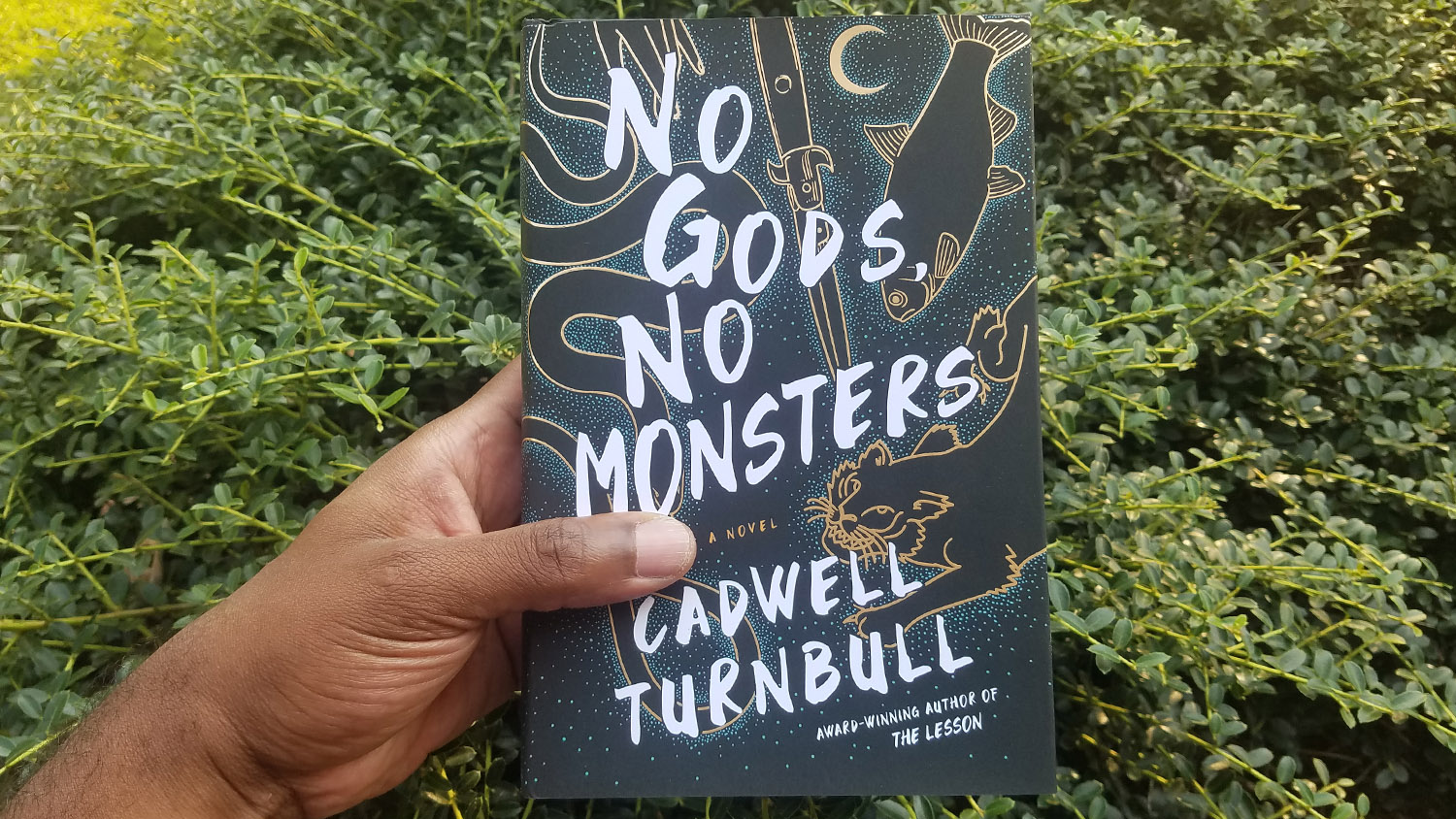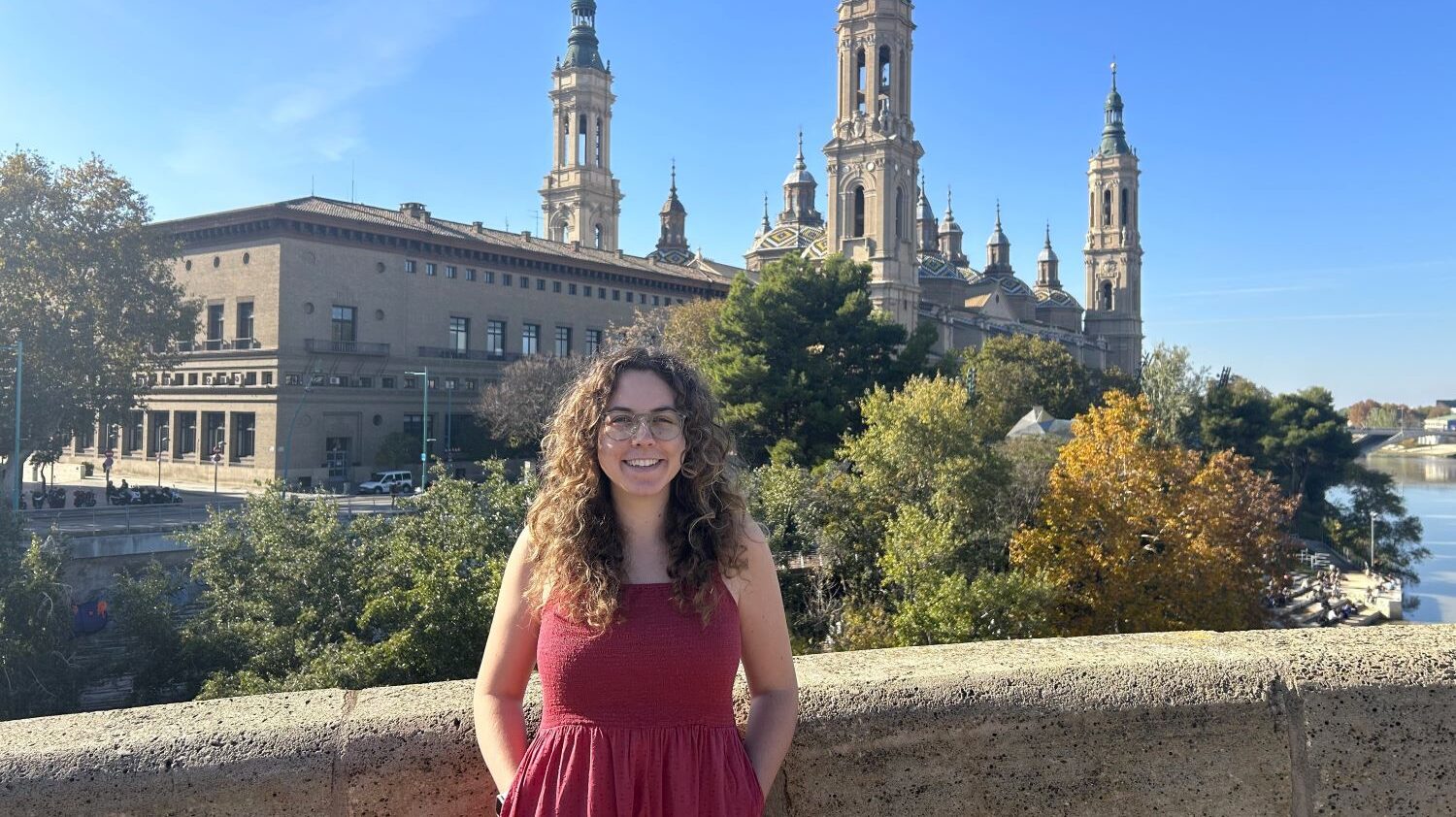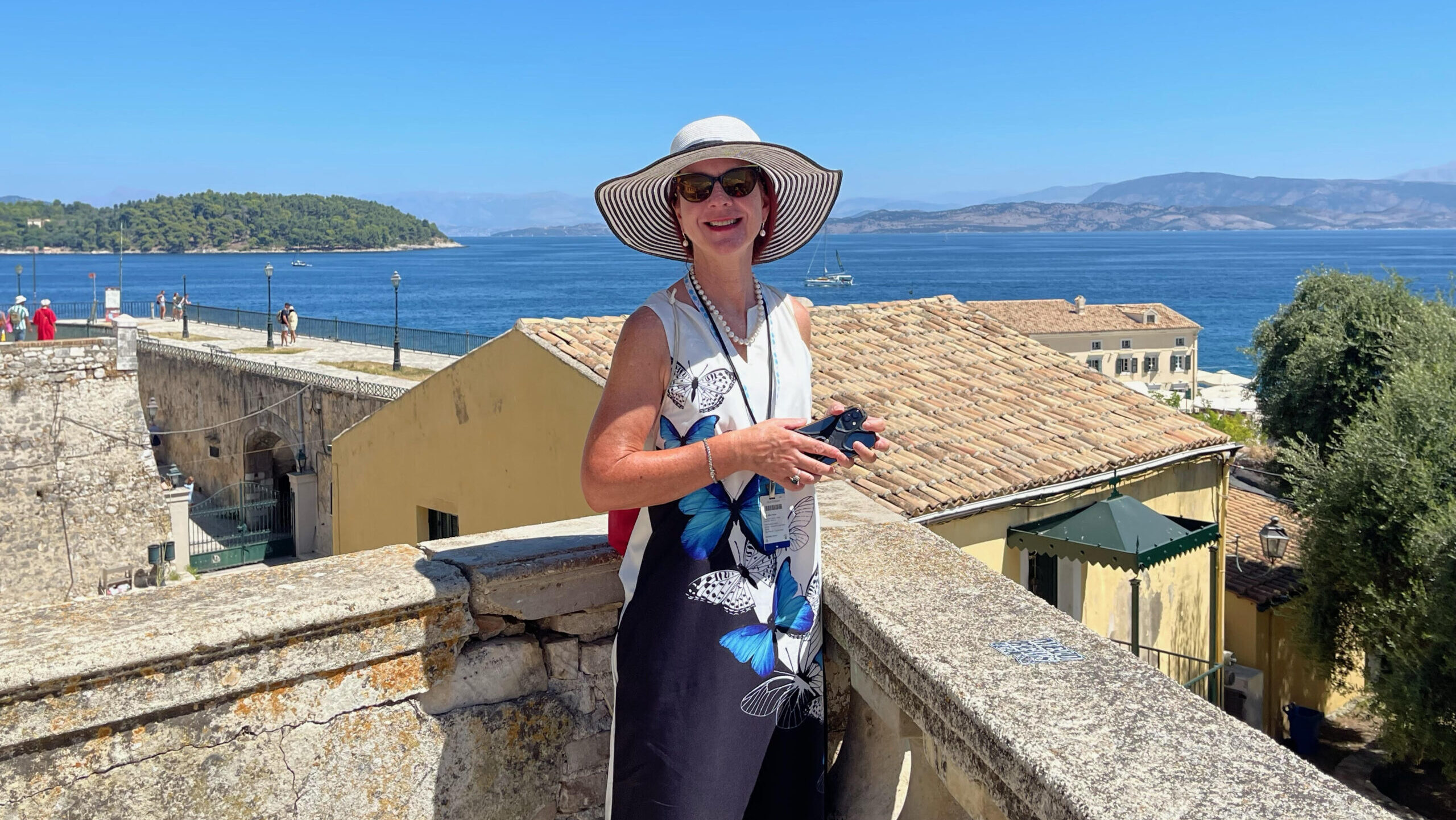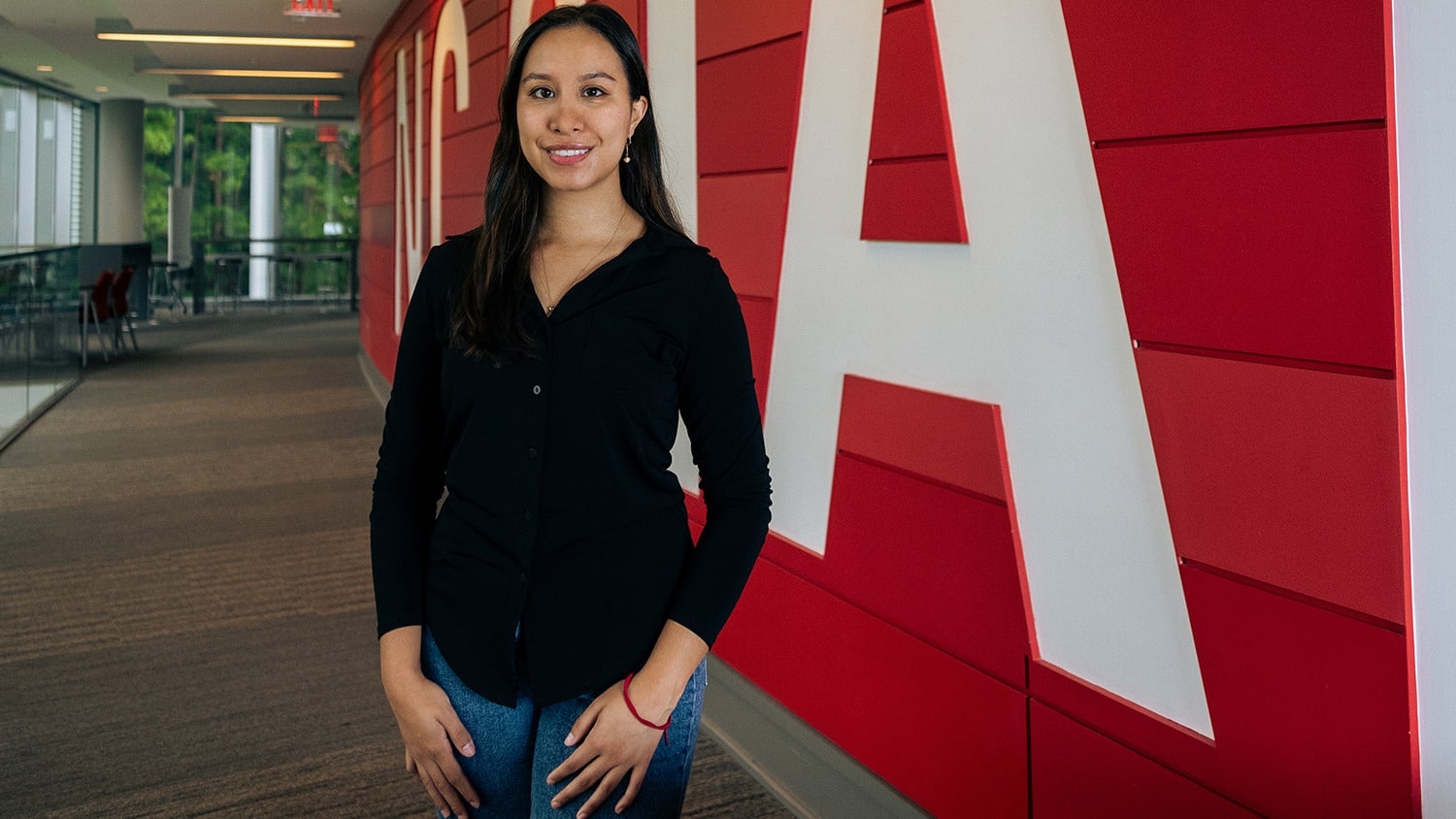Cadwell Turnbull graduated from NC State with a master’s degree in English linguistics and an MFA in creative writing. After publishing his debut novel, The Lesson, which landed on must-read lists across the nation, he joined the Department of English faculty in 2020.
His latest book, No Gods, No Monsters, centers on a world in which monsters are real — and their emergence sets off a chain of seemingly unrelated events. We caught up with Turnbull to learn more about his writing motivations and his teaching career.
Why this story? What motivated you to tell it?
Part of my motivation was to engage with the genre itself. I love urban fantasy as a reader, but I realized that I’d never really explored it as a writer. As I worked on the novel, my motives multiplied. The book is about monsters from myth and folklore making themselves known in the world. It is also about how humans process traumatic events, both personal and societal, and the ways we deal or don’t deal with the new realities these moments present. I wrote it because I’m interested in those themes. But it feels even more relevant given recent events.
How does No Gods, No Monsters differ from other books you’ve written?
Well, I’ve only written one book before this. The Lesson does have a lot of thematic similarities to this one even though it is in a different genre. My debut was a first-contact novel, looking at a threat from the outside. But this book is more focused on inner turmoil, deep fears, regrets or guilt coming to the surface. Beyond that, this book is a bit bigger in scope. The Lesson was set primarily in the Virgin Islands (where I grew up). No Gods, No Monsters is set in a number of locations and times, and the people the novel connects come from very different backgrounds.
You juggle a lot. How does a professor make time to write?
However I can. I’m not always successful. I try to get up in the morning and do the writing first thing, when I have the attention and energy to give my all to it. But sometimes other concerns are more pressing. When that happens, I try to make space sometime in the day to put something down on the page. If I can’t, I give myself grace. The next day is a fresh start.
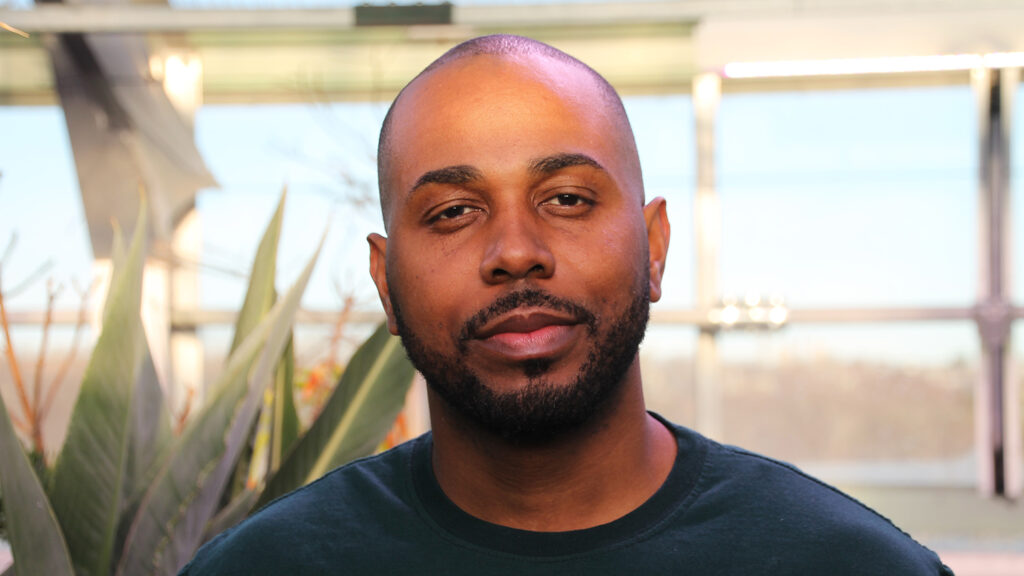
How does your writing affect your work as a professor and your interactions with students?
I teach fiction to undergrads and graduate students. Because I write in a lot of different genres, I tend to approach work from a place of curiosity and openness. I get excited about everything as a writer, so I bring that same outlook to the work of my students.
And because I know how difficult and bewildering writing can be, I’m pretty encouraging of students experimenting with the craft in ways that keep them engaged. I organize a collaborative project for all my classes because I think it is a good way to try out different approaches and take stories in surprising directions.
What got you interested in science fiction?
I watched a lot of science fiction movies and TV shows when I was younger. Once I found the books I liked, I read a lot, too. I’ve always gravitated toward the questions science fiction asks. As a kid, I thought I wanted to be a scientist because I was so curious about how the world worked. Later I discovered that I wanted to explore that curiosity through stories. I started and haven’t been able to stop.
In one word, what do you need to overcome writer’s block?
Walks.
What book might people be surprised to find on your shelves?
If they know me, nothing is really surprising. I have a book called Ritual Magic. It is mostly for research.
You’re organizing a literary dinner party. Which three writers, dead or alive, do you invite?
I am WAY too predictable in this answer. Ursula K. Le Guin, Octavia Butler, and George Orwell. Today, anyway. Sometimes it is not George Orwell.
What’s next for you? Another novel, something else?
Another novel, the second in this series, called We Are the Crisis. The deadline is looming.
- Categories:
